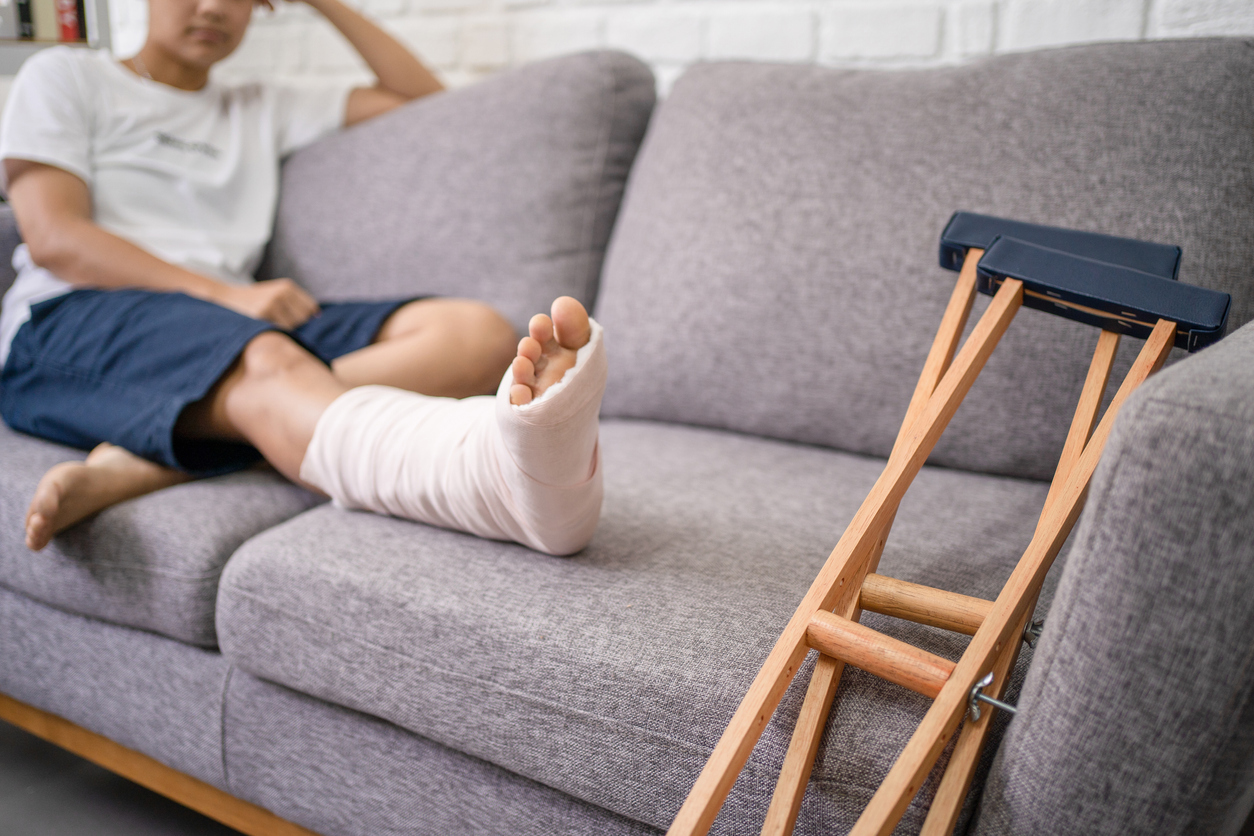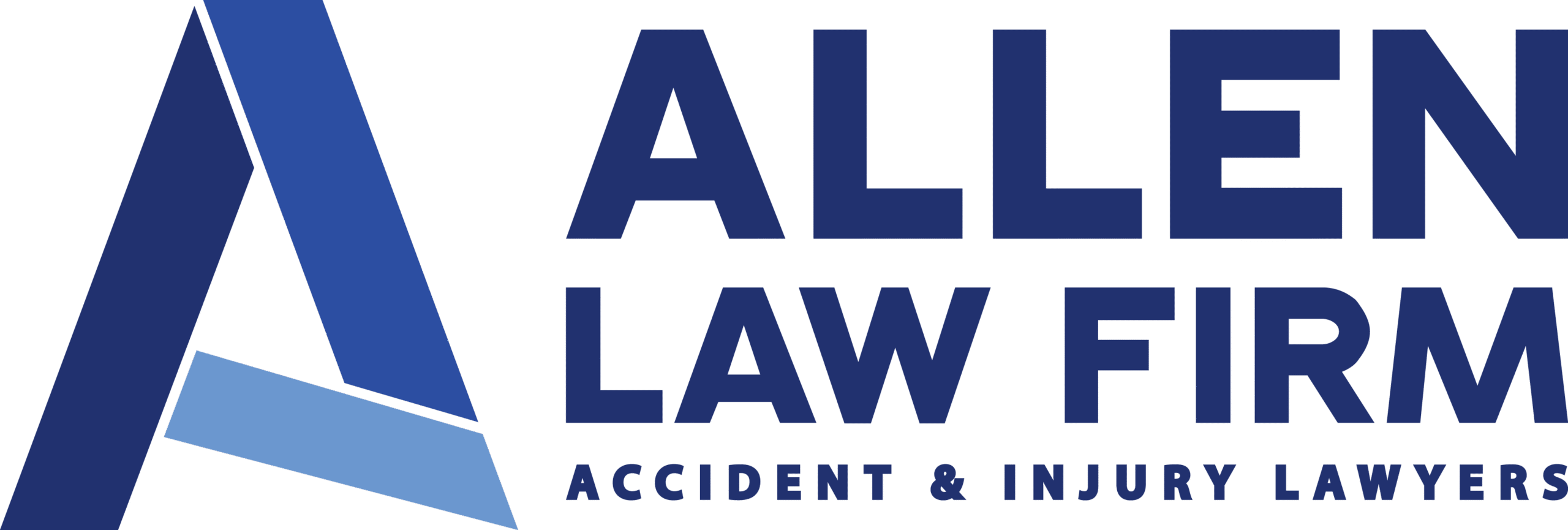Legal Considerations for College Students: Personal Injury
Bill Allen | June 12, 2025 | Personal Injury

College campuses should serve as safe havens for learning and growth. Yet thousands of Florida college students sustain injuries on campus each year—from slip-and-fall accidents in residence halls to sports-related incidents, poorly maintained walkways, or inadequate security leading to assaults.
Knowing your legal options when campus accidents occur helps ensure you’re equipped to protect your rights and pursue fair compensation during an already challenging time.
Common Types of Personal Injuries on College Campuses in Florida
Many types of accidents occur on college campuses in Florida.
Among the most common personal injuries college students sustain are:
- Slip and Fall Accidents in hallways, stairwells, dorms, outdoor areas, classrooms, stadiums, etc.
- Intentional Violence and Assaults, including fights, sexual assaults, battery, hazing, and other intentional acts.
- Sports-Related Injuries may occur when college students participate in intramural sports teams, attend sports events, participate in physical education courses, or engage in casual sports with friends.
- Injuries in Campus Housing and Dorms can be caused by unsafe building conditions, defective appliances, attacks, falls, pest infestations, and exposure to hazardous materials and mold.
- Food Poisoning can occur anywhere on a college campus where students eat, including cafeterias, independent vendors, and other locations.
- Drug and Alcohol-Related Injuries may occur at parties, social gatherings, school-sponsored functions, and dormitories.
- Car Accidents may involve fender benders, vehicle crashes, pedestrian accidents, scooter accidents, and bicycle accidents.
Accidents and personal injuries can result in severe and life-altering injuries for college students. Traumatic brain injuries, broken bones, spinal cord injuries, soft tissue injuries, internal organ damage, and neck injuries are just a few of the injuries college students suffer on campuses.
Understanding Liability for a Personal Injury on a College Campus in Florida
There are several grounds on which college students may file a personal injury case for injuries on campus.
The legal grounds for personal injuries on college campuses include:
Negligence
A negligence claim alleges that the responsible party failed to meet their required duty of care, which resulted in a college student’s injuries.
This means that the:
- The university or other party had a duty of care to act with reasonable caution to avoid causing an injury
- The college or responsible party breached the duty of care by failing to act responsibly
- The breach of duty was the proximate and direct cause of the college student’s injuries
- The college student sustained damages because of the injuries
The college may have failed to adequately supervise students or enact policies and procedures to ensure student safety. The university may have failed to perform thorough background checks on potential employees, thereby hiring a sex offender or a violent individual.
Premises Liability
Universities and colleges have a duty of care to provide a safe environment for their students. This duty includes maintaining classrooms, dorms, walkways, grounds, and other facilities. It also includes addressing unsafe living conditions, broken equipment, and other hazards in a timely manner. Failing to warn students of potential hazards may also lead to a premises liability claim.
Intentional Torts
Individuals may be held liable for intentionally causing harm to a college student. For example, individuals in a fraternity could be liable for personal injuries caused by hazing. A person may be liable if they intentionally attack or harm a student. However, the college could also share liability for these acts if it fails to meet the standard of care, such as providing adequate security, lighting, and safety measures.
Assumption of Risk
College students may assume some risk when participating in specific activities, such as playing sports. For example, playing college football carries certain inherent risks associated with the sport. However, colleges also have a responsibility to provide reasonable supervision, safe premises, and proper equipment. If the college fails in its duty of care, it could be liable for damages regardless of the assumption of risk.
Vicarious Liability
Vicarious liability is the legal theory that a party is responsible for the actions of another party. It is often used in lawsuits involving negligent employees. If an employee injures a student in the course of their employment duties, the college may share liability for damages caused by the employee’s negligence.
What Should a College Student Do if They Are Injured on Campus in Florida?
The steps students should take after an injury or accident on campus include:
- If possible, make photographs of the accident scene. Ensure that you capture the cause of your injury, such as a broken step.
- Ask witnesses to provide you with their names and contact information.
- Seek immediate medical attention to document the injuries. Keep copies of all medical records and bills to prove economic damages. Also, keep detailed notes about your pain and suffering for non-economic damages.
- Report your injury to the college’s administrative office. Ensure that you receive a copy of the written incident report.
Consult a Florida personal injury attorney for a free consultation. Prompt legal advice at the beginning of a case can give you a significant advantage in pursuing your claim.
Contact Our Gainesville Car Accident Law Firm at Allen Law Accident & Injury Lawyers in North Central Florida
If you or a loved one has suffered an injury on a Florida college campus, don’t navigate the complex legal landscape alone. At Allen Law Accident & Injury Lawyers, we understand the unique challenges students face after a campus injury—whether it’s a slip and fall in a dormitory, a violent assault, or negligence by campus authorities. Our experienced legal team is dedicated to protecting your rights and helping you pursue the compensation you deserve.
Your education and well-being should never be compromised by unsafe conditions or negligent behavior. Let us advocate for you while you focus on healing and your future.
If you need legal assistance, contact the Gainesville car accident lawyers at Allen Law Accident & Injury Lawyers at your nearest location to schedule a free consultation today, we’re open 24 hours daily.
We have three convenient locations in Marion County and Alachua County, North Central Florida:
Allen Law Accident & Injury Lawyers – Gainesville Office
2550 SW 76th St #150
Gainesville, FL 32608
(877) 255-3652
Allen Law Accident & Injury Lawyers – Downtown Gainesville
621 W University Ave
Gainesville, FL 32601
(866) 928-6292
Allen Law Accident & Injury Lawyers – Ocala Office
112 S Pine Ave
Ocala, FL 34471
(352) 351-3258

